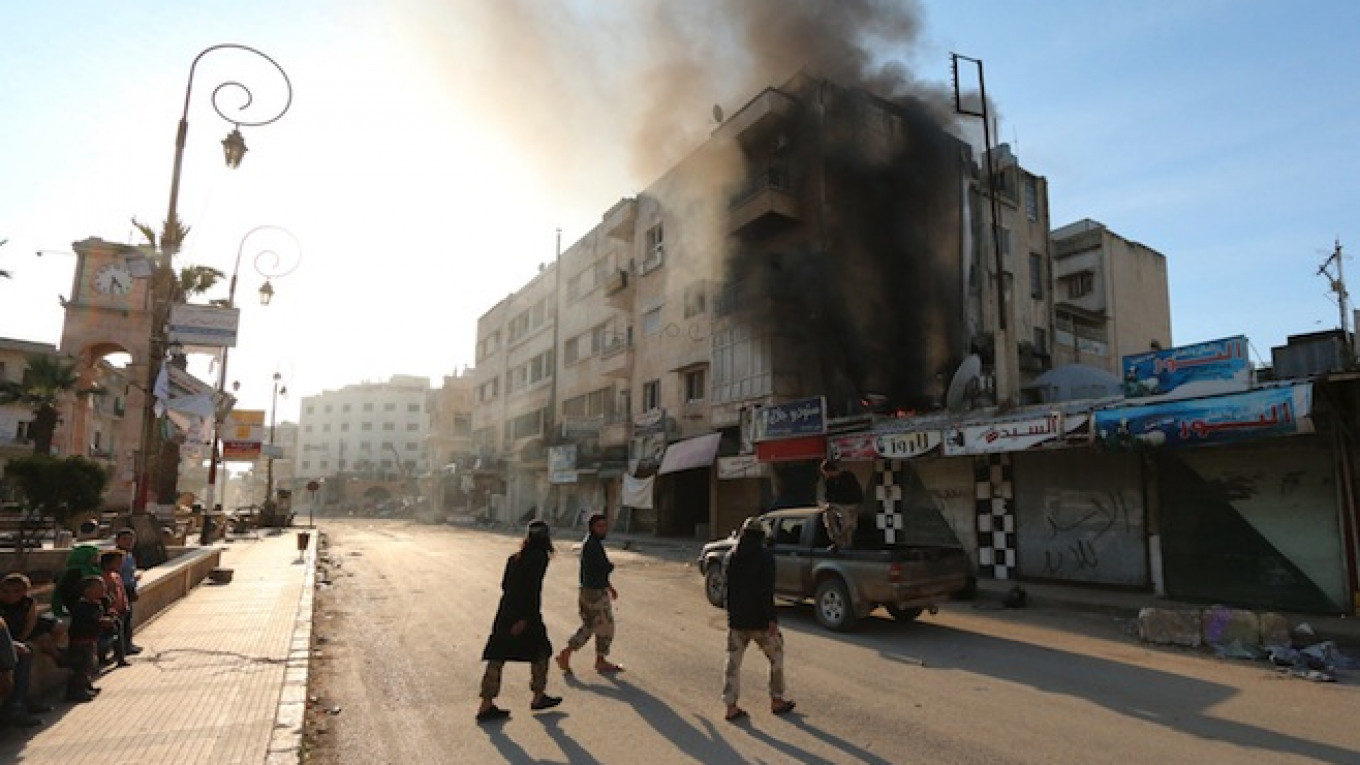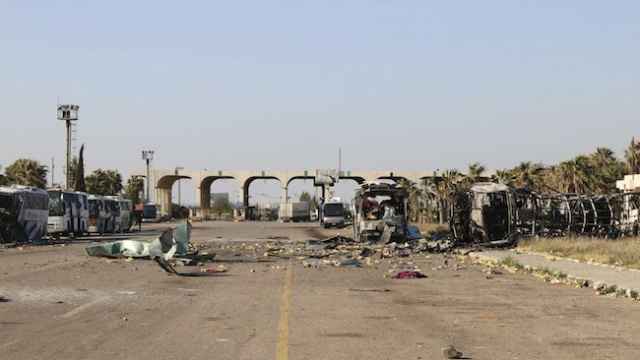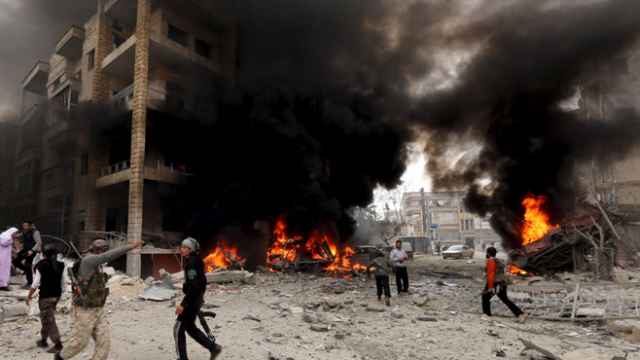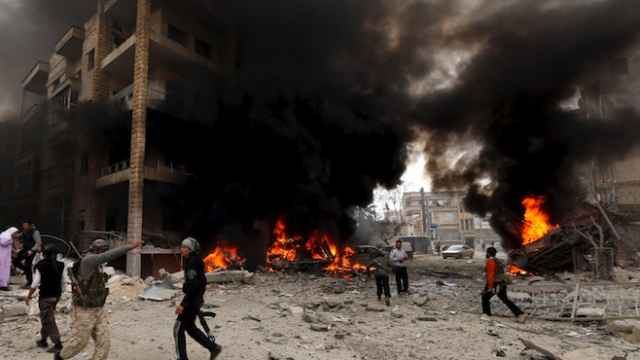Talks between representatives of the Syrian government and some members of the opposition ended in Moscow on Friday with no sign of a breakthrough to end a four-year-old conflict that has killed more than 220,000 people.
The second such meeting this year in Russia, an ally of Syrian President Bashar al-Assad, was marred by friction among the opposition delegates and was boycotted by the Syrian National Coalition, a Western-backed group based in Istanbul.
Russian mediator Vitaly Naumkin, Qadri Jamil, a former Syrian government official now with the opposition, and the head of the Syrian government delegation in Moscow, Bashar al-Jaafari, praised an accord they said both sides had endorsed.
They said it called for a political deal based on an agreement reached in Geneva in 2012, an end to outside meddling and a halt to support of terrorism in Syria.
"We had no illusions that these talks could provide solutions to all the problems. But we managed to agree on some points," Jamil said. "We should see the glass as half-full, not half-empty."
But Samir Aita, of the Syria Democratic Forum opposition group, said not all opposition delegates supported the set of principles that were agreed and called for trust-building measures and humanitarian issues to be addressed.
"Despite all the casualties in Syria, it seems Bashar al-Assad still does not understand what a political solution is. I think the Syrian regime missed a chance to move towards a political solution," Aita said. "This document doesn't help build hope, on the contrary — it destroys it."
The delegations agreed in principle on the need to fight terrorism and end foreign meddling but disagreed on what exactly that meant.
Another point of contention was a drive by Kurds for self-rule and their refusal to disarm. Damascus says only the Syrian army should be allowed to bear arms. The opposition said that should be for the future, after a political transition.
Participants also said they discussed chances for returning to talks in Geneva, which collapsed last year, but no decisions were taken.
The first round of talks in Moscow in January also ended inconclusively and Naumkin said a pause was now likely. The Syrian National Coalition has shunned the talks because it said it wanted to take part only if they led to Assad's departure.
Most of the factions fighting in Syria, including the most powerful single insurgent force, the Islamic State, have had nothing to do with any political discussions between the Syrian government and its political opponents.
A Message from The Moscow Times:
Dear readers,
We are facing unprecedented challenges. Russia's Prosecutor General's Office has designated The Moscow Times as an "undesirable" organization, criminalizing our work and putting our staff at risk of prosecution. This follows our earlier unjust labeling as a "foreign agent."
These actions are direct attempts to silence independent journalism in Russia. The authorities claim our work "discredits the decisions of the Russian leadership." We see things differently: we strive to provide accurate, unbiased reporting on Russia.
We, the journalists of The Moscow Times, refuse to be silenced. But to continue our work, we need your help.
Your support, no matter how small, makes a world of difference. If you can, please support us monthly starting from just $2. It's quick to set up, and every contribution makes a significant impact.
By supporting The Moscow Times, you're defending open, independent journalism in the face of repression. Thank you for standing with us.
Remind me later.






